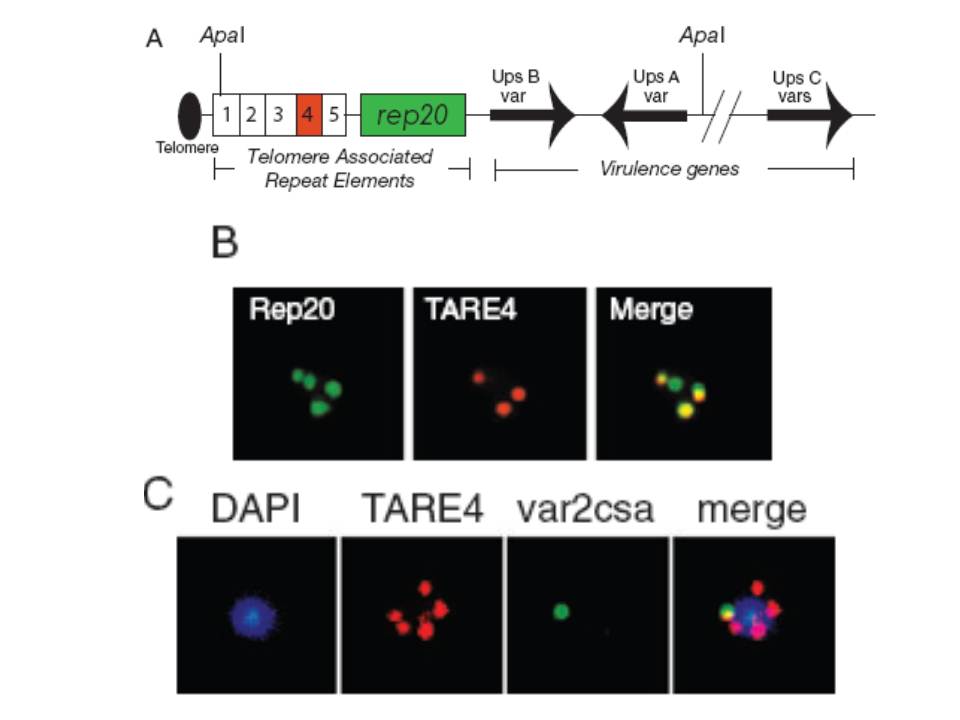A. Schematic of a P. falciparum chromosome end. Chromosome ends are comprised of the parasite’s virulence genes, the telomere and six non-coding TAREs. This structure is conserved across the subtelomeric regions. FISH probes were made to Rep20 (TARE6, shaded green), the largest and most conserved of these repeats, and TARE4 (shaded red), a much smaller, highly degenerate repeat. ApaI sites used in the 2D-PFGE analysis are indicated. B. FISH telomeric probes are specific. Epifluorescence image of a nucleus hybridized with a Rep20 (green) and TARE4 (red) telomeric probes. The telomeric probes colocalize. The var gene var2csa colocalizes with telomeric clusters irrespective of its transcriptional status. C. FISH analysis on intact nuclei. Epifluorescence images of a nucleus stained with DAPI and hybridized with var2csa (green) and TARE4 (red) probes to identify var2csa and telomeric clusters respectively.
Marty AJ, Thompson JK, Duffy MF, Voss TS, Cowman AF, Crabb BS. Evidence that Plasmodium falciparum chromosome end clusters are cross-linked by protein and are the sites of both virulence gene silencing and activation. Mol Microbiol. 2006 62:72-83. Copyright John Wiley & Sons Ltd. 2010
Other associated proteins
| PFID | Formal Annotation |
|---|---|
| PF3D7_1200600 | erythrocyte membrane protein 1, PfEMP1 |
| Rep20 | Rep20 |
